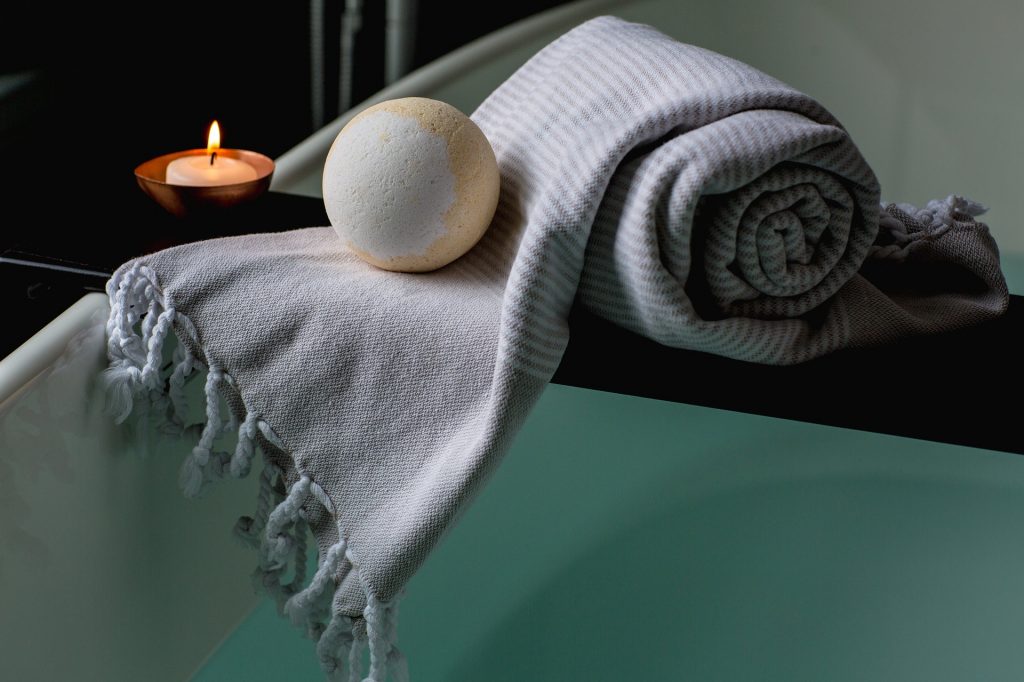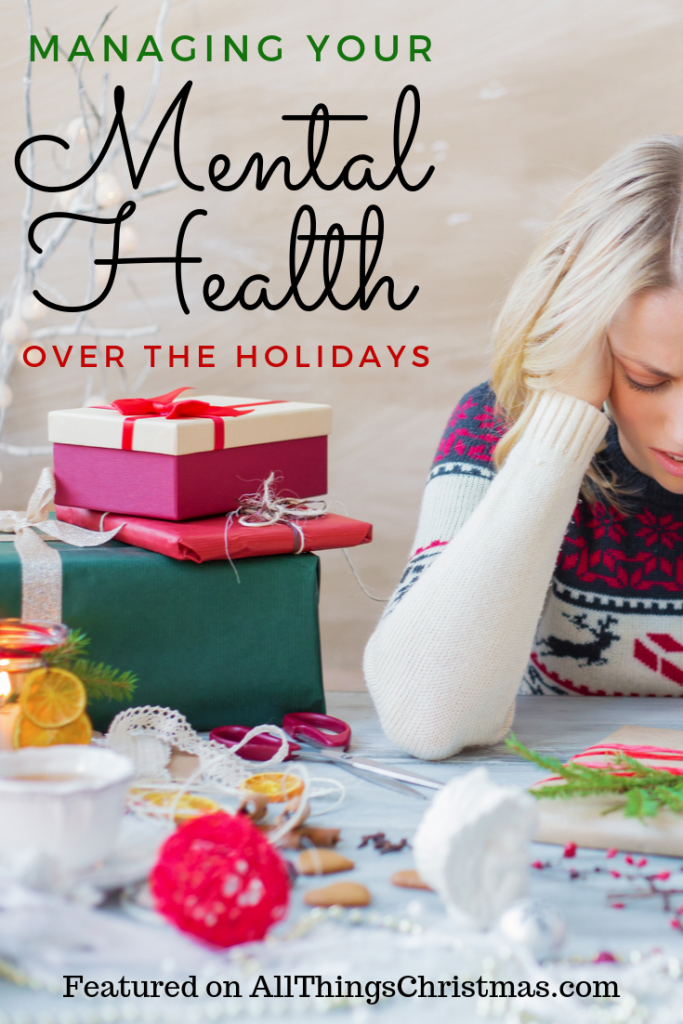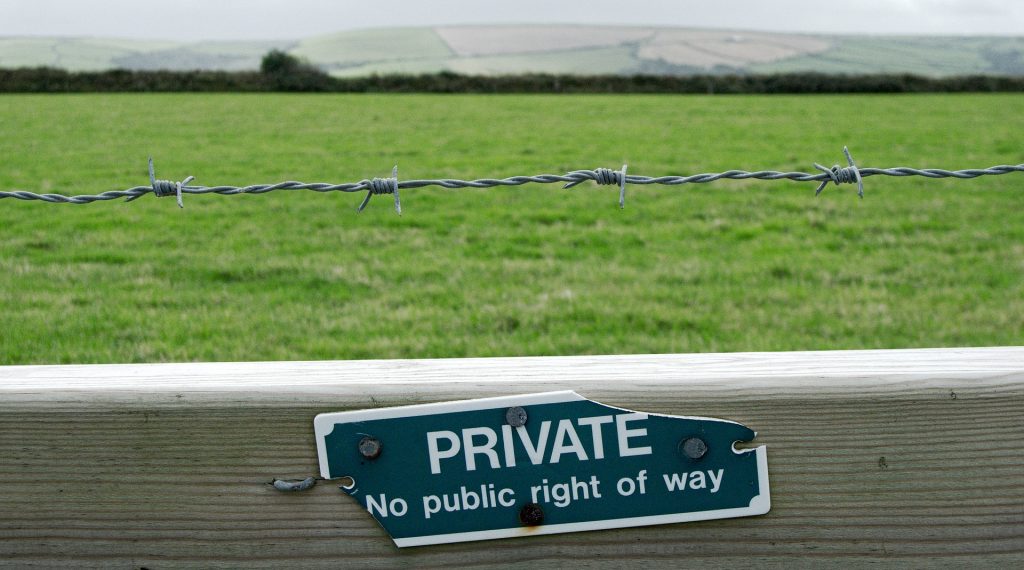Managing Your Mental Health over the Holidays
Guest Post by Emma of Sass and Clacks
The Christmas period is my favourite time of year. There’s nothing I love more than coming home on a crisp winter evening to a warm pair of slippers, a cosy blanket, and a hot chocolate, and finally finding (or making) that perfect gift gives me the warm fuzzies. There’s tasty treats and celebrations aplenty, and everywhere I turn there’s love, warmth, and affection.
However, the traditions and sentiments behind the holiday season can also be a source of stress and anxiety. While for many Christmas is a joyous time to spend with family, friends, and loved ones, not everyone has the fortune to be surrounded by people who bring them happiness.
Christmas can be a very difficult season to navigate when you live with mental health conditions. I have Mixed Anxiety Depressive Disorder, which zaps my energy at the best of times – and at the worst can leave me near-catatonic. You may also find that the symptoms of your mental health disorder get worse as the nights draw in, and if you have Seasonal Affective Disorder as well, you might find that you need to spend even more time each day taking care of your mind over the holiday season.

Self Care
As the holiday season focuses so heavily on spending time around friends and family, your self care routine can often fall to the wayside. With so many social events to attend, from work Christmas parties to Christmas Day itself, it can feel like you’re spending the entirety of December giving away every ounce of your emotional energy – with no opportunity to recuperate it.
The key to maintaining your self care routine over Christmas is to schedule it in your calendar – and treat it as an obligation.
Just as you’d write in your calendar when you’re hanging out with friends, colleagues, or family, schedule in at least one evening every week dedicated to your mental health and recuperating your emotional energy. Self care is unique to everyone, but as long as you’re spending dedicated time on your own joy, pleasure, and sense of self, you’re performing self care.
Personally, I love to start my self care evening with a long bubble bath and a face mask, usually with a true crime book or my favourite podcast. I leave my phone out of arm’s reach, because I can easily get overwhelmed and anxious by notifications and messages. Once I’m out the bath, I like to spend a few hours with a good documentary, Steven Universe, or Brooklyn 99 while I crochet or knit.
Whatever you do, and however you do it, please make sure you’re making time for yourself over Christmas. It isn’t selfish to take time away from the Christmas hype to look after yourself.
Familial Relationships
One of the major sources of anxiety and conflict during the Christmas period can be spending time with family – particularly if you have a less than familial relationship with them. Families can, unfortunately, be a major source of trauma for victims of childhood abuse. Even outside of the sphere of trauma, they can be particularly harmful to spend time with if they know about your mental health issues, but don’t understand the exact nature of it.
The non-stop Christmas movies, songs, and advertising about harmony and love that one experiences as part of a close-knit family can be especially guilt-inducing when you don’t have that kind of harmonious, loving, or joyous relationship. After all, if all you see is people having the time of their lives celebrating with family – even if those people are fictitious – it can leave you feeling like you’re broken.
One thing you need to know, right now, is that you are not broken.
Families are complicated; even more so if you have a terse relationship with them. But if there’s one thing I’ve learned over years of therapy it’s this –
Just because they’re your family, it doesn’t mean they have any power over you.
You are your own person. The people who raised you do not own you. Your family do not have any inherent right to your time, presence, or emotional labour.
There are plenty of people like you who struggle with spending time with their families for some reason or another, and there’s plenty of online communities you can find advice in. The subreddit r/JustNoMIL is great for advice around toxic and/or abusive mothers and mothers-in-law, and r/RaisedByNarcissists is a dedicated group for people with narcissistic parent/s.
I’ve found the latter subreddit does contain a lot of helpful sources to dealing with toxic parents, so if you find yourself having to spend time with your family at Christmas, you might find some of the advice on this subreddit helpful for getting through the holiday period.
Setting and Enforcing Boundaries
If you’re a people-pleaser like me, one of the hardest things you’ll have to face with your relationships is setting and enforcing your boundaries. Unfortunately, this gets even harder over Christmas, when you’re expected to take part in what feels like endless social events, with a wide variety of people – some of whom you may have a bad history with.
There’s a lot of pressure to forgive and make peace with these people or spend time around them in order to ‘keep the peace’ at Christmas. But this is not something that anyone should be expected to do.
Speaking as someone with a less-than-stellar relationship with my parents, spending time with people who have a negative effect on your mental health at Christmas is difficult. During the season of family, joy, and hope, you can be left feeling like you’re constantly on guard. There is, however, a way you can still show your face at Christmas, while enforcing your own boundaries.
The key, for me, has been to make it clear to people when I will be seeing them over Christmas – if at all. In my case, every year, I switch between spending Christmas Day with my parents and with my in-laws, so there’s the understanding with my parents when I will be seeing them. I also have the understanding with my parents and my in-laws that myself and my partner spend Christmas Eve alone, so there’s no expectation of us spending time with them on that day.
If the opportunity arises, make sure you make yourself clear with the person you need to set boundaries with. Tell them when you will spending time together, and during what times. Telling, rather than asking, is key to enforcing your boundaries and leaving no room for doubt about what you will do.
It’s also likely that when you’re spending time with these people, uncomfortable topics will arise. How you respond will depend entirely on your relationship with this person and the context of the conversation but, in my case, I try to not respond to inflammatory remarks – or, even better, agree with them if they make fun of me.
By setting and enforcing boundaries, you’re showing not only where you’ll draw the line with that person, but most importantly, you’re taking back power for yourself.
Medication
If you’re taking medication to manage your mental health condition, make sure you have plenty of medication to cover you across the holiday season when pharmacies are closed or only operating on limited hours. If you’re struggling to leave the house yourself, your pharmacy may allow a named individual to pick up your prescription for you, but it’s worth checking whether this is something your pharmacy allows you to do.
Talking to your family about being on medication can be difficult – believe me, my parents were convinced my being on Prozac was going to make me violent and that I didn’t need them – so if you need to hide taking medication while you’re spending time with family, that’s okay. While it can be difficult to hide taking medication if you have to take it with food, Christmas is perhaps the best time of the year to sneak to the kitchen for leftovers while everyone is watching movies or playing games. If someone in your family knows you’re on medication, you could always ask them to initiate a game or some other distraction so you can get a moment of peace to take your medication.
Supplements
Supplements can be a great way of lessening the symptoms of your mental health disorder without needing to fill a prescription. As well as Mixed Anxiety Depressive Disorder, I also have Seasonal Affective Disorder, so even on medication my symptoms get notably worse as the nights draw in. Before you start taking any supplements, please check with your doctor if they are right for you.
From October until around April, I regularly take supplements to boost my energy.
As the light levels drop in from late Autumn to early Spring, your body’s Vitamin D level drops. While you can get Vitamin D from eating fish and dairy, it can be particularly tricky to fully supplement your diet in this way, particularly if you don’t eat fish and dairy foods. So, taking a good-quality Vitamin D supplement will help alleviate symptoms of depression.
Vitamin B is also helpful for keeping your energy levels up, which I found particularly helpful as I find it difficult to feel fully awake during the winter. Particularly if you work indoors and don’t see natural sunlight during the day, going to work and leaving work in the dark can leave you feeling sluggish and lethargic.
Helplines (UK)
If you’re dealing with a crisis over the Christmas period, the following helplines are available:
Samaritans: 116 123 (24 hours, 365 days a year)
SANEline: 0300 304 7000 (4.30pm-10.30pm every day)
Mind Infoline: 0300 123 3393 (9am-6pm Monday to Friday) or text 86463
The Mix: 0808 808 4994 (4pm-11pm, under 25s) or text ‘THEMIX’ to 85258
About the Author
Emma is a health and fitness blogger over at www.sassandclacks.co.uk. She writes regularly about pole dance, body positivity, and mental health. When she’s not blogging, Emma enjoys true crime documentaries, crochet, and playing tabletop roleplaying games.
Find her here:
Facebook: www.facebook.com/sassandclacks
Instagram: www.instagram.com/sassandclacks
Pinterest: www.pinterest.com/sassandclacks

Health Resources:
https://livelyme.com/health-plan-comparison-calculator/






Leave a Reply